Dentures Plano
Prosthetics You Can Count On
If you’ve been struggling with moderate to severe tooth loss, then you might consider getting dentures for a lifelike and reliable solution to restoring your smile. Depending on your situation and how many teeth you’re missing, our team can typically provide you with partial or full dentures in Plano. Both types of prosthetics are custom-built to provide security for your new bite. Your restorations will stay in place with the use of suction and maybe some denture adhesive. Dr. Sam Antoon will take accurate measurements and detailed notes about the size and shape of your mouth to send to a certified ceramist who will create your denture or partial. The Antoon Family Dental team wants your replacement teeth to fit comfortably and securely as well as look completely natural, so call our office today!
Why Choose Antoon Family Dental for Dentures?
- Utilize Modern & Advanced Dental Technology
- Professional, Committed, & Caring Dental Staff
- Natural-Looking & Completed Personalized Restorations
Who Is a Good Candidate for Dentures?

If your missing teeth impact your life on a daily basis, whether it’s mentally, physically, or both, then you may be a good candidate for dentures. They are ideal for patients who are missing several, most, or even all of their teeth. If you don’t initially make a good candidate, you might be able to become one by restoring the health of the gum tissue and bone structure. Continue reading to learn more.
The Effects of Missing Teeth

Teeth are very strong, but they aren’t completely indestructible. The most common causes behind missing teeth include tooth decay, gum disease, and trauma. According to the American Academy of Periodontology, there are numerous negative health effects that you can experience from tooth loss. They include facial sagging, difficulty speaking, trouble eating, and lower self-esteem. By replacing your missing teeth with dentures, you can improve all of these areas, positively influencing your quality of life.
What Qualifies You for Dentures?

Dentures are ideal for those who have experienced significant tooth loss. People who get dentures must also be committed to their dental health routine and willing to properly care for their dentures and smile. The number of teeth that you are missing will ultimately determine which type of denture is ideal for you. One of the great things about dentures is the fact that they are much more affordable than other tooth replacement options, like dental implants. This makes them an option for those who are unable to invest a lot of money into their smile at this time.
Alternative Tooth Replacement Options

If you aren’t a good candidate for dentures, or they don’t sound like your cup of tea, you may want to consider other tooth replacement options, like dental bridges or implants. Here is what each one consists of:
- Dental Bridges: A dental bridge works by “bridging” the gap with a replacement tooth using dental crowns on the adjacent teeth. This is great for patients who are only missing one or a few teeth. This method requires healthy teeth surrounding the missing tooth to support it.
- Dental Implants: A dental implant is a screw-like post that is surgically inserted into the jawbone to support a replacement tooth. This requires that the patient has a strong and sufficient bone structure. This option is more costly than traditional dentures, but it is permanent.
Learn More About Dental Bridges
Learn More About Dental Implants
Types of Dentures
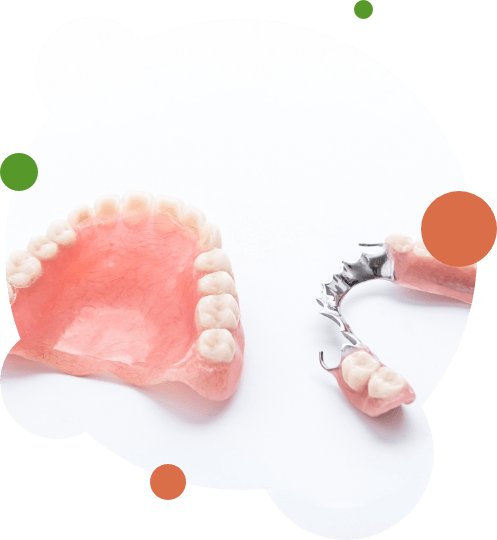
Dentures have been an effective way to replace missing teeth for centuries. Today, there are a few different types that you can choose from depending on your specific dental needs. During your consultation, we’ll walk you through the typical options you can expect, including:
Partial Dentures
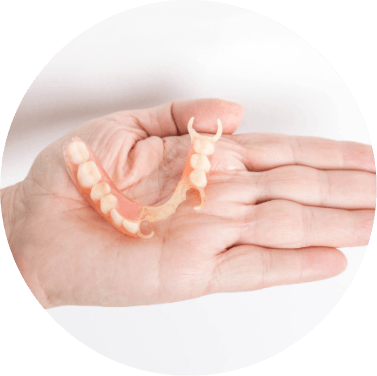
If you’re missing several teeth but still have some healthy ones remaining, then you might be eligible for partial dentures. These restorations are made up of a gum-colored base containing artificial pearly whites. They are kept in place via small metal clasps that wrap around nearby teeth, effectively restoring your bite and smile.
Full Dentures
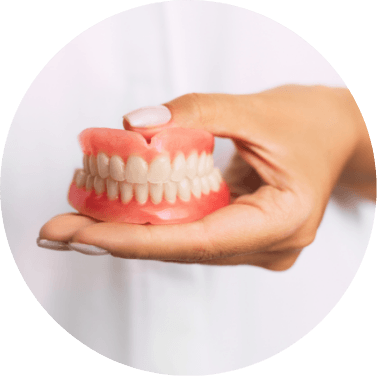
These restorations are simply designed to renew full arches of missing teeth. Similar to partials, they consist of a gum-colored base and prosthetic teeth. The difference is that they don’t clasp onto any remaining ones but rely on natural suction to the gumline. You can also use a tiny amount of denture adhesive to help keep them in place.
Implant Dentures
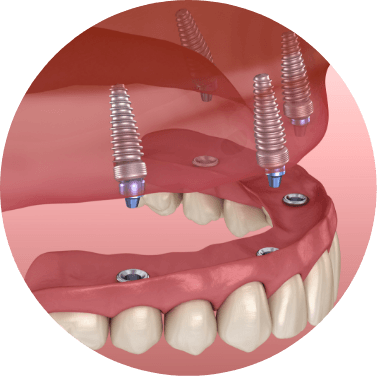
Want a sturdier and more lifelike solution for replacing your missing teeth? With implant dentures, you can rebuild your grin by anchoring your restorations to titanium posts embedded into your jawbone. Not only can this renew the majority of your biting power, but it can also preserve a more youthful facial shape, preventing jawbone deterioration and further tooth loss. The results can even last several decades with proper care!
How Dentures Are Made
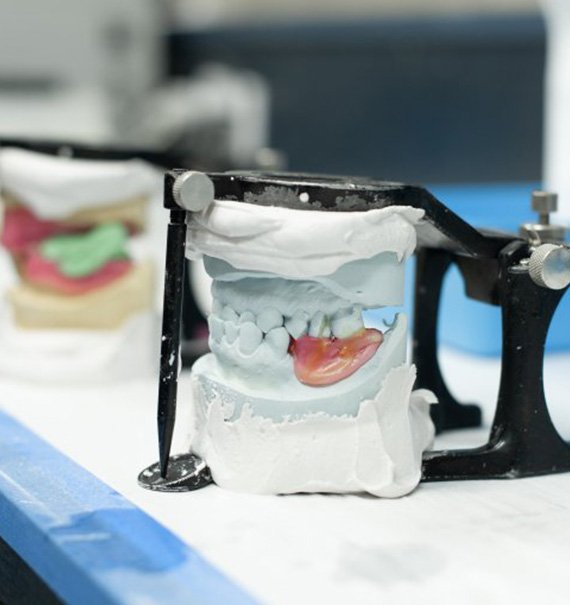
Dentures can be a fantastic way to replace lost teeth, and knowing how they are made can help you appreciate these wonderful prosthetic devices a little more. Here’s a quick look at how each set of dentures is crafted and customized to meet the needs of each individual patient at Antoon Family Dental of Plano.
What Are Dentures Made Of?
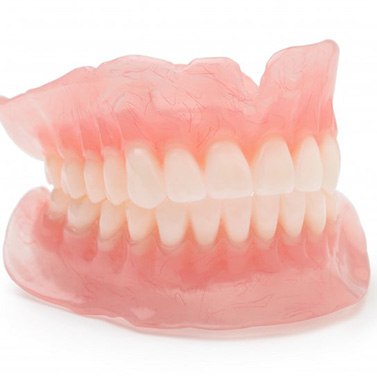
Each denture consists of two principal components: the base and the artificial teeth. Here’s a quick look at these two parts:
- The base: This structure provides the sturdy foundation the artificial teeth need for support. While bases can be made from resin, nylon, porcelain, and metal, they are usually made from acrylic since it can be easily shaded to match the color of the gum tissue. The bases of partial dentures may also incorporate metal clips that allow them to connect with the patient’s remaining natural teeth.
- Artificial teeth: These restorations are usually made from resin or porcelain to give them a lifelike appearance. While porcelain looks and feels more like natural dental enamel, it can be harsh on the remaining teeth, so it is usually only used for full dentures. Resin, on the other hand, is usually used for partial dentures.
The Denture Creation Process
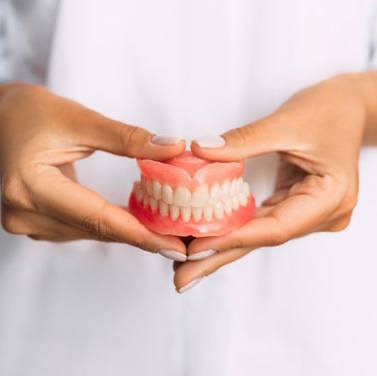
Each denture from our office in Plano is completely customized to fit the patient’s mouth using the following process:
- Step 1: Antoon takes detailed measurements of the patient’s bite. This data is used to create a plaster model of the patient’s gums and remaining teeth.
- Step 2: This plaster model is sent to a trusted dental lab where a skilled technician will use it to create a wax replica of the gumline.
- Step 3: The technician sets artificial teeth into the wax gumline using a device called an articulator.
- Step 4: The wax dentures are sent back to our Plano office for a fitting. If they’re approved, we’ll send them back to the lab to be finalized. We’ll give you a temporary set of dentures to wear in the meantime.
- Step 5: The technician will place the dentures in a flask with plaster and boil them to eliminate the wax portions. This will create a negative mold for your final restoration.
- Step 6: Acrylic is injected into the flask with a liquid separator to keep it from sticking. This forms the base of your denture.
- Step 7: The technician carefully removes the plaster from the denture and cleans the device with an ultrasonic bath.
- Step 8: The technician trims and polishes the appliance until it shines.
- Step 9: You’ll come back to our office in Plano to try your new dentures on. After any final adjustments, you’ll be ready to show off your new smile.
Adjusting to Your New Dentures

Your dentures should feel remarkably natural after you get used to wearing them, but you can expect some discomfort while adjusting. You can accelerate this process by exercising your facial muscles, sticking to a soft diet, and using an adhesive if needed. However, contact our office if your discomfort seems to be getting worse instead of better after several days.
The Benefits of Dentures
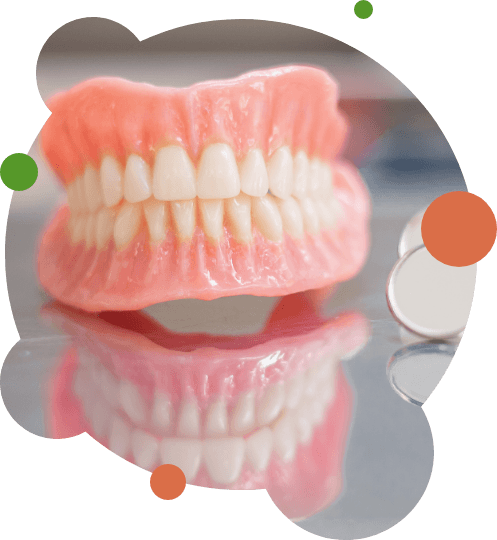
As you may have guessed, tooth loss lowers your quality of life by making daily tasks harder. Eating, speaking, and smiling get difficult without all your teeth. The good news is that dentures in Plano can fix this issue; their advantages make everyday living much easier. By getting them, you could quickly overcome the downsides of missing teeth! Just keep reading to learn more about the benefits of dentures, or call us for the details.
Psychological Benefits

For a lot of patients, tooth loss can be a major blow to mental health. It often causes issues for self-esteem and body image, with some cases leading to major depressive disorder. Thankfully, dentures would let you avoid that problem by filling your grin’s gaps. Since they’d get rid of those awkward spaces, the prosthetics should boost your confidence in social settings. You’d then feel calmer and more relaxed about your looks, speech, etc.
Clearer Enunciation

As it turns out, your tongue needs your teeth to enunciate words. That means losing just a few can make something hard to say, leading to speech impediments like lisps or slurred words. However, dentures overcome this problem by replacing your natural teeth; they support your tongue enough to form words. Still, note that talking with them isn’t an instant process and requires daily practice.
Improves Nutrition

Prolonged tooth loss can lead to a poor diet, as you need strong teeth to chew many foods. Lacking a full smile can prompt many to give up potentially healthy meals, resulting in malnutrition and indigestion. The bright side is that dentures would correct this issue with their artificial teeth. Because the prosthetics are sturdy, they can chew tough foods quite well. That means they’d expand your meal choices and boost your nutritional health.
Preserves Oral Health
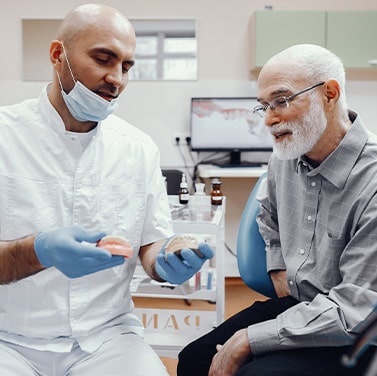
As it turns out, untreated tooth loss harms oral health. The resulting “smile gaps” can tilt your remaining teeth, let harmful bacteria breed, and slowly erode the rest of your smile. Thankfully, dentures would overcome the dilemma and preserve (or improve) your grin’s health. They’d “fill” your smile gaps enough to keep teeth from tilting, as well as reduce the spread of harmful microbes. Plus, you could count on their artificial teeth to bear some of your mouth’s chewing force.
Expands Opportunities

A beautiful smile is key to a great first impression, as nice teeth inspire goodwill and lead others to put trust in you. Such goodwill can then lead to many opportunities – new friendships, dates, career success, etc. Luckily, dentures would give you a gorgeous grin ideal for socializing with others. Their looks are lifelike enough to foster many good impressions, whether you’re chatting with friends or coworkers. You could trust them to lead you to many grant opportunities.
Understanding the Cost of Dentures

Dentures are a great option to restore a beautiful, functional smile. There isn’t a set cost for dentures because the fees are determined by your specific treatment plan. We’ll provide you with an estimate and explain the cost of dentures in Plano during your initial consultation. Although every case differs, here’s what you can expect to pay for your new smile.
Factors that Affect the Cost of Dentures
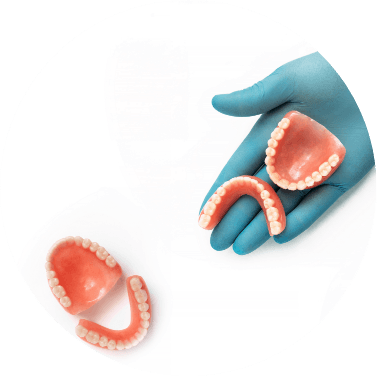
There are various factors influencing the cost of dentures; however, the price is largely based on:
- Additional Procedures: It’s not uncommon to need a little prep work before getting your dentures, such as tooth extractions.
- Materials: Your base will be made of acrylic, but there are several types with different costs. The base will be dyed to match the color of your gum tissue to look natural.
- Restorations: Your replacement teeth can be made from porcelain or acrylic. Your denture dentist in Plano will explain the benefits of each type to ensure your smile looks its best.
Although everyone likes to save money, it’s not always best to go with the cheapest option. It’s better to choose quality over the price.
Are Implant Dentures More Expensive?

Implant dentures in Plano cost more than the traditional treatment, but they are the most affordable long-term. Traditional dentures last about 5 to 7 years before needing to be replaced. An implant-supported option can thrive for a lifetime with the right aftercare. With over a 95% success rate, you can enjoy a solution that can last for decades. Besides their longevity, implant dentures also offer several other benefits not possible with a conventional denture, like unmatched stability, aesthetics, and durability.
Does Dental Insurance Cover Dentures?
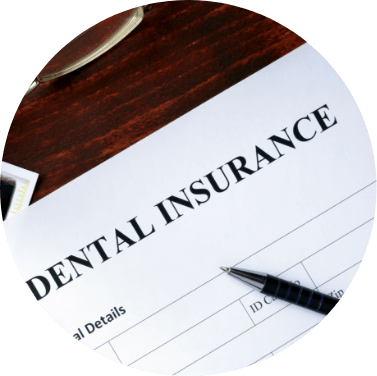
Every dental insurance policy is unique, but many plans can be used to help offset the cost of your new smile. Depending on your specific policy, your benefits can cover as much as 50% of the expense after reaching your annual deductible. A member of our team will work on your behalf with your insurance company to help you maximize your annual allowance.
Other Options for Making Dentures Affordable
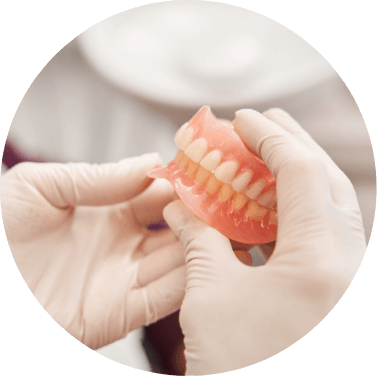
In addition to using your dental insurance, our office also accepts several other payment methods to keep your replacement teeth within your budget. We’ll help you find the solutions you need to rebuild your smile without breaking the bank, such as:
- Traditional Methods: Our office accepts cash, checks, and major credit cards for any remaining balance.
- Financing: Third-party financing provides you with the funds you need, which you’ll repay using a payment plan that accommodates your budget.
- In-Office Discount Plan: If you don’t have dental insurance, we offer an in-office discount plan. For a low annual fee, you’ll enjoy discounted rates for a variety of preventive and restorative treatments, like dentures. You won’t need to worry about any premiums, deductibles, or waiting periods.
Don’t let the cost of dentures deter you from replacing your missing teeth. Antoon Family Dental has the options you need to smile confidently using the latest materials and techniques in dentistry.
Call us today if you would like to schedule a consultation with Dr. Sam Antoon. We regularly treat patients from Plano by fitting them for dentures or partials, including busy professionals who work in the Legacy business area or along Preston, Spring Creek, and Tennyson. If this will be your first time seeing Dr. Antoon, please take a moment to read our important new patient information. To learn about the other ways we can rebuild your smile, take a look at our restorative dentistry page, which details each of the replacement services that we offer.
Dentures Aftercare

You’ll be wearing your new dentures quite a bit, so how can you mitigate the effects of daily wear and tear? With a good aftercare routine! Proper maintenance will help keep your dentures looking good and working efficiently for longer, saving you from frequent repairs and replacements. Plus, it’s good for your oral health, too. Part of taking care of your dentures means cleaning them daily, otherwise bacteria build up could harm your gums or stain your prosthetic. Basically, good aftercare makes for a win-win situation.
Removable Dentures
Remove After Eating
After each meal, it’s a good idea to remove your dentures and give them a quick rinse. This will help dislodge food particles, which can increase bacteria accumulation or make your dentures feel plain uncomfortable!
Just be sure to rinse with lukewarm water. Hot water can warp plastic, which means it might change the shape of your dentures.
Clean Your Restoration
Once per day, brush your dentures with a soft-bristled toothbrush and either hand soap or dish soap. Believe it or not, toothpaste is just abrasive enough to cause premature wear for dentures. Don’t forget to get the underside of your dentures, and brush your gums, inner cheeks, and tongue as well!
Keep Your Dentures Safe
Dentures aren’t exactly fragile, but they’re not invincible, either. Take care when you’re handling them so as not to accidentally drop them. While you’re cleaning, you can lay out a soft towel over your sink and countertop as a safety measure – your dentures are much less likely to break if they hit the towel instead of hard porcelain!
Another safety measure you should keep in mind is the location of your dentures when you’re not wearing them. Place them somewhere secure so excited children or curious pets don’t accidentally damage them.
Remove When You Sleep
For the most part, you’ll want to wear your dentures all day. However, if you sleep with them, you could develop bad breath or gum irritation. It’s essential to give your mouth a break and allow your gums to circulate.
We recommend letting your dentures soak in a special denture cleaning solution overnight. This helps eliminate bacteria and ensure your dentures are squeaky-clean and ready for the next morning!
Notice Changes
If you notice a change in your dentures or your mouth, such as a poor fit or sores, give us a call to let us know. We can readjust your dentures, provide relief for discomfort, and diagnose more concerning symptoms.
All-on-4 Dentures
All-on-4 dentures are anchored by dental implants, so they require different care than most other dentures. However, the routine will likely still look familiar to you! Here’s what we suggest:
- Brushing your dentures twice daily and getting underneath them with a sulcus brush (which has 1/3 the normal width of the average toothbrush).
- Flossing at least once per day with your preferred tool – traditional floss, floss threaders, or a water flosser.
- Rinsing your mouth daily with an antibacterial mouthwash.
Dentures FAQs
What Is the Average Age for Dentures?
While people of all ages can potentially be candidates for dentures, research reveals that the need for false teeth generally increases as a person grows older. According to the National Center for Health Statistics, about 66% of adults between the ages of 40 and 64 are missing at least one tooth, compared to only 33% of adults aged 20-39. However, no matter your age, if you are missing teeth you should ask a denture dentist in Plano about options for restoring your smile.
How Long Will I Have to Wait to Get Dentures After My Teeth Are Pulled?
While the exact amount of time varies from patient to patient, you can likely expect to wait between six to eight weeks to get your dentures after your teeth are removed. This waiting period allows your gums to heal and ensures that your traditional dentures will fit properly when they arrive. If you have opted for implant dentures, you will have to wait longer. Implants typically take four to six months to heal and fully integrate with the surrounding jawbone.
What Can’t I Eat with Dentures?
While you can still enjoy many of your favorite foods with dentures, you will likely have to make some adjustments to your diet. For example, you should avoid eating sticky foods like peanut butter or gummy candies, as these can pull your dentures out of place. You may also find it hard to eat foods that contain small pieces, like shelled nuts, sesame seeds on bread rolls, or popcorn kernels. These tough bits may get stuck in and around your dentures and could even damage them. In addition, you should limit your consumption of hard foods that can damage or dislodge dentures, such as nuts, popcorn, apples, carrot sticks, and corn on the cob.
Is It Hard to Talk with Dentures?
When you first get dentures in Plano, it may take some time to get used to speaking with your new teeth. However, practicing at home by yourself can help speed up the adjustment process. Reading books or newspapers out loud and repeating any difficult-to-pronounce words is good exercise. In addition, you can start by speaking slowly while you grow accustomed to your dentures and eventually work your way back to normal speed as time goes on. If you need help keeping your dentures from shifting while you speak, you can pick up some denture adhesive from your local pharmacy or supermarket.
Can I Kiss with Dentures?
Thankfully, you don’t have to choose between restoring your smile with dentures in Plano and kissing your loved one. While it may take some time to get used to how your replacement teeth feel, it is completely possible to kiss while wearing dentures. Unlike your real teeth, dentures do not contain any nerves. For this reason, we recommend using caution to avoid kissing your special someone too hard or accidentally bumping your dentures against their teeth. Focusing on kissing gently while wearing dentures will also help ensure that your prosthetic teeth don’t shift out of place.
Should I Have All My Teeth Pulled to Get Dentures?
Repairing a damaged tooth whenever possible is always preferable to replacing it. Tooth extractions of any kind will only be recommended if deemed necessary, like when a tooth is too damaged to save thanks to extensive decay, severe infection, or trauma that has broken off most of the enamel. If all of the teeth in an arch are decayed or infected with gum disease, replacing them with dentures may be a viable option, but your dentist will always explore all of your options before recommending extractions.
Can I Sleep with My Dentures?
Dentists generally recommend taking your dentures out at night when you go to bed. When you first get your dentures, you’ll typically be told to keep them in your mouth for 24 hours, including when you sleep. After this, you should be taking them out each evening. This is because wearing dentures restricts the circulation in your gums, leading to soft tissue irritation and potentially speeding up ridge resorption. Taking dentures out gives the gums a chance to recover and get the nutrients you need while you sleep. The dark, moist space beneath the dentures is also an ideal place for bacteria to thrive, so sleeping with dentures is closely associated with a higher risk of pneumonia. Ultimately, it is best to take them out when you catch some Z’s.
Will It Hurt to Get Dentures?
If you need to have teeth extracted before getting dentures, you are likely to experience some discomfort after oral surgery. Take prescribed pain medication only as directed. The discomfort should improve within 3 to 5 days after the procedure. When you first get a new set of dentures, some minor irritation may occur as your mouth adjusts. If you are switching to a new set, this adjustment process may take longer than before. If any pain persists, give us a call so we can help!
Why Do My Dentures Smell?
Bacteria can become trapped in several nooks and crannies of your dentures, especially if they don’t fit properly. When dentures are ill-fitting, they can irritate the soft tissues, leading to sores and infections that contribute to bad breath. Denture wearers also tend to produce less saliva, leading to dry mouth and increasing the probability of halitosis. To reduce and prevent bad breath, clean your dentures every day with a soft-bristled toothbrush and specialized cleaner. Don’t forget to brush your entire mouth, including your gums, tongue, cheeks, and palate. Soak your dentures in a disinfecting solution each night to keep them moist and reduce bacteria. Also, give your dentures a rinse after meals to wash away food particles.

